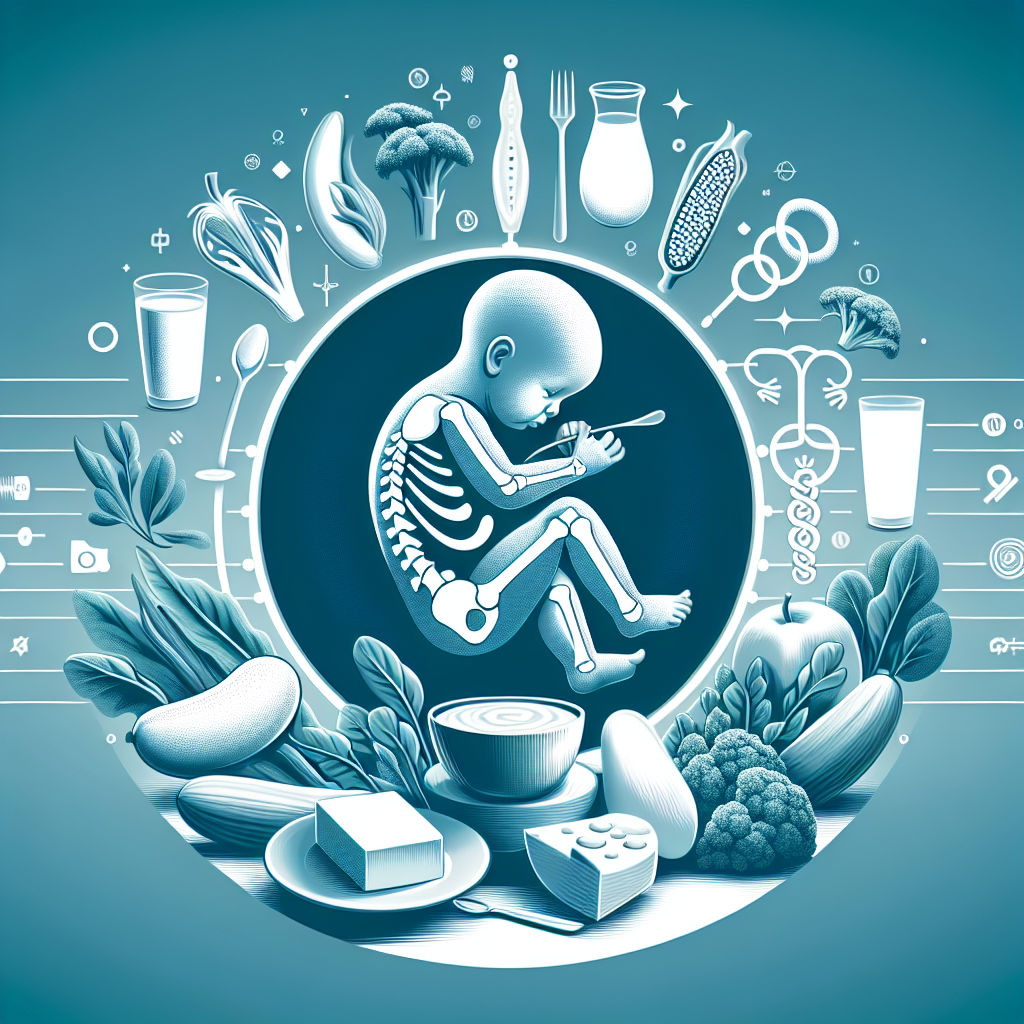The Importance of Calcium During Pregnancy: Nutritional Guide
Introduction
Pregnancy is a time of major changes in a woman's body, and nutrition plays a crucial role in the healthy development of the child. One of the vital elements in this nutritional puzzle is calcium. This essential mineral contributes to the building of the child's bones and teeth, but also to the health of the heart, nervous system and blood clotting. Therefore, in this article we will explore the importance of calcium during pregnancy and how a mother can ensure she is getting the proper amount.
The Role of Calcium in Pregnancy
Calcium is crucial for fetal development. From the formation of bones and teeth, to the optimal functioning of the muscle and nervous system, calcium is involved in numerous biological processes. Without enough calcium, the baby can draw from the mother's stores, weakening her bones and increasing the mother's long-term risk of osteoporosis.
Sources of Calcium in Food
The best suppliers of calcium are dairy products: milk, yogurt, cheeses. However, for mothers who are lactose intolerant or follow a vegan diet, there are alternatives such as almond milk, soy milk, leafy greens, tofu, nuts and seeds. It is important to vary the sources to benefit from a diversified intake of minerals.
Recommended Amount of Calcium
The recommended daily intake of calcium for pregnant women varies by age and can generally be between 1000-1300 mg. Consultation with a doctor or nutritionist is essential to determine your personal needs. Calcium supplements may be an option, but getting the mineral directly from your diet is preferable.
Effects of Calcium Deficiency
Calcium deficiency can lead to high blood pressure during pregnancy and pre-eclampsia, a life-threatening condition for both mother and baby. It can also affect the development of the baby's bones and teeth, as well as muscle and nerve function.
Managing Calcium with Other Nutrients
Calcium does not work alone. Vitamin D, magnesium and phosphorus are all essential for the efficient absorption and use of calcium. Make sure your diet also includes these nutrients to maximize the benefits of calcium intake.
Strategies to Improve Calcium Intake
In addition to diet, certain strategies can increase calcium intake. Exercise, for example, can improve bone density, and sun exposure can increase vitamin D levels, facilitating calcium absorption. Also, avoiding excess caffeine and sodium can prevent calcium loss through urine.
Integrating Calcium into the Daily Diet
Keeping a food diary can be a first step in making sure you're getting enough calcium every day. Include calcium-rich snacks, fortified drinks and cereals in your daily diet, and if necessary, talk to your doctor about supplements.
Conclusion
Calcium is a key player during pregnancy, ensuring both the health of the mother and the healthy development of the baby. It's important to pay attention to your calcium intake to successfully navigate this journey of motherhood. A balanced diet rich in various sources of calcium as well as proper lifestyle management are essential. If you have any questions or concerns, don't hesitate to talk to your doctor or a nutritionist. This is just the beginning of a wonderful and healthy adventure for you and your future baby.














































































































































